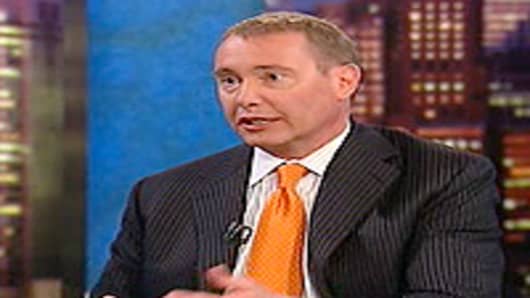Bond king Jeff Gundlach likened municipal bonds to subprime mortgage bonds on CNBC’s Strategy Session on Wednesday.
“You’ve got a history of low defaults, which is comforting. But that kind of sounds like what subprime sounded like back in 2006,” Gundlach said.
Gundlach said the markets for subprime bonds and municipal bonds are similar because the buyers are similar. Muni bond buyers aren’t seeking fundamentally good credit stories—they are buying for “technical reasons,” Gundlach said. This is exactly what happened with subprime
With subprime bonds, buyers were seeking highly-rated credit with very low default histories in order to satisfy regulatory bank capital requirements. They largely ignored deteriorating fundamentals, and continued to buy subprime mortgage-backed securities at a rapid clip even when the problems with the market were becoming apparent in the first half of 2007.
Muni bonds are bought for a different “technical reason”—the tax benefit—and buyers are once again ignoring deteriorating fundamentals. So are munis going the way of subprime?
“If by that you mean, lower, then yes. If you mean crashing, I’m agnostic on that,” he told David Faber.
Got that? Munis are headed lower. And he’s “agnostic” on whether or not they will crash. When one of the most important names in bond investing says he cannot tell whether or not an entire class of bonds will crash, there’s reason for investors to worry.
It wouldn’t be surprising if Gundlach’s comments spark a renewed sell-off of bond funds.
Gundlach pointed out that even if defaults do not ultimately climb as high as critics like Meredith Whitney have warned, muni bonds will likely trade much lower.
“Between here and the end game, lies the valley. And the valley is full of fear. I think the muni market is going to go down by at least, on the long end, something like 15 and 20 percent,” he said.
He brushed off the notion that the investors in the muni market are buy-and-hold types who are unaffected by declines in trading prices.
“It gets scary when the prices start to drop. The fear factor here is going to be palpable. People who own munis tend to own them for the tax benefit and they tend to own most of their assets, if not all of their assets, in the muni asset class. So when they get to fall, they get nervous," Gundlach said.
___________________________________________
Questions? Comments? Email us atNetNet@cnbc.com
Follow John on Twitter @ twitter.com/Carney
Follow NetNet on Twitter @ twitter.com/CNBCnetnet
Facebook us @ www.facebook.com/NetNetCNBC



